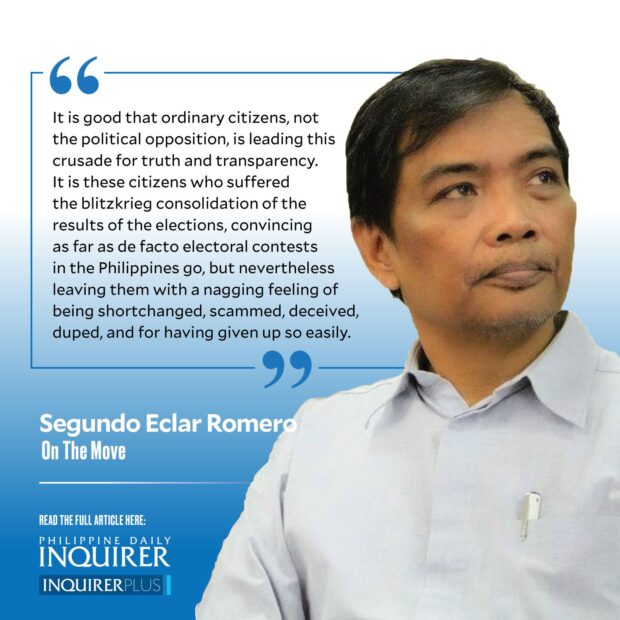
The ambassador says he was quoted out of context, likely if he were speaking in Chinese, but unlikely since he was talking in English. The problem with Chinese ambassador Huang Xilian is that he has two diametrically opposed audiences, Xi Jinping and the CCP on the one hand, and the Filipino audience on the other. He cannot please both. And there is not much goodwill to fall back on, not even after the successful initial export of durian to the People’s Republic of China, as if that has reduced poverty in Mindanao significantly.
Huang Xilian is a transition ambassador, serving since December 2019 under President Rodrigo Duterte, as the country reeled from the onslaught of the Wuhan virus for the next two and a half years. The good ambassador must have looked, mistakenly, at the Marcos presidency as a continuation of the Duterte administration with regard to China.
In the past, the Chinese ambassador could get away with these remarks about Filipino-Chinese friendship that goes a thousand years, while China snatches islands within the Philippines’ exclusive economic zone and shooing away our fishermen like flies. Only in the Chinese bureaucrat’s mind is there no contradiction in these two actions, which is why the Chinese ambassador can feel hurt by being taken out of context.
The Philippine worldview is changing. The Philippines has deliberately taken the decision to host the United States armed forces, and that was all that was needed to get significant changes in the power structure in the Indo-Pacific. This is the full reversal of the Philippine Senate saying “no” to the US bases agreement extension in 1991.
It took China several years to build military structures on coral reefs and atolls, deceiving the world by building makeshift structures purportedly for the safety of fishermen. Now, these fishermen’s shelters are full-blown aggressive platforms for bullying Filipino fishermen and laser-lashing at the Philippine Coast Guard.
The Camilo Osias (Cagayan), Lal-lo Airport (Cagayan), Camp Melchor dela Cruz (Isabela), and Balabac, Palawan bases are far more strategic than any of the artificial military garrisons China has built on fragile features in the West Philippine Sea. The Enhanced Defense Cooperation Agreement sites are permanent, unsinkable military platforms. The most important point is how these bases enable the larger panoply of American forces to be deployed in the South China Sea and the Western Pacific. The psychological boost that this does for Filipinos cannot be gainsaid. If Filipinos have found their voice, as they now lecture the Chinese ambassador back, it will only intensify.
The other shift in public opinion I can feel is the traction that the “TnT Trio” is getting in making its case against the Commission on Elections (Comelec). Ignored by Comelec, now the TnT Trio is able to get more people to listen. In the webinar that they held last Saturday morning, I saw there were 350 participants from all over the world tuned in. Those watching the live stream of the webinar must have run into thousands.
It is good that ordinary citizens, not the political opposition, is leading this crusade for truth and transparency. It is these citizens who suffered the blitzkrieg consolidation of the results of the elections, convincing as far as de facto electoral contests in the Philippines go, but nevertheless leaving them with a nagging feeling of being shortchanged, scammed, deceived, duped, and for having given up so easily.
The willingness to take on the Comelec may also come from the public aloofness of the Comelec. The Comelec has not fully recovered from the loss of James Jimenez as a spokesperson for the commission for 16 years. For an agency that has had a checkered public image, Jimenez provided a reassuring and relatable face to media, voters, and the public at large.
It is disturbing that given the extreme shenanigans in government, this pattern of civil servants being so easily and conveniently constrained to terminate their exemplary service “for acts grossly disadvantageous to the government” needs to be examined more closely.
doyromero@gmail.com

